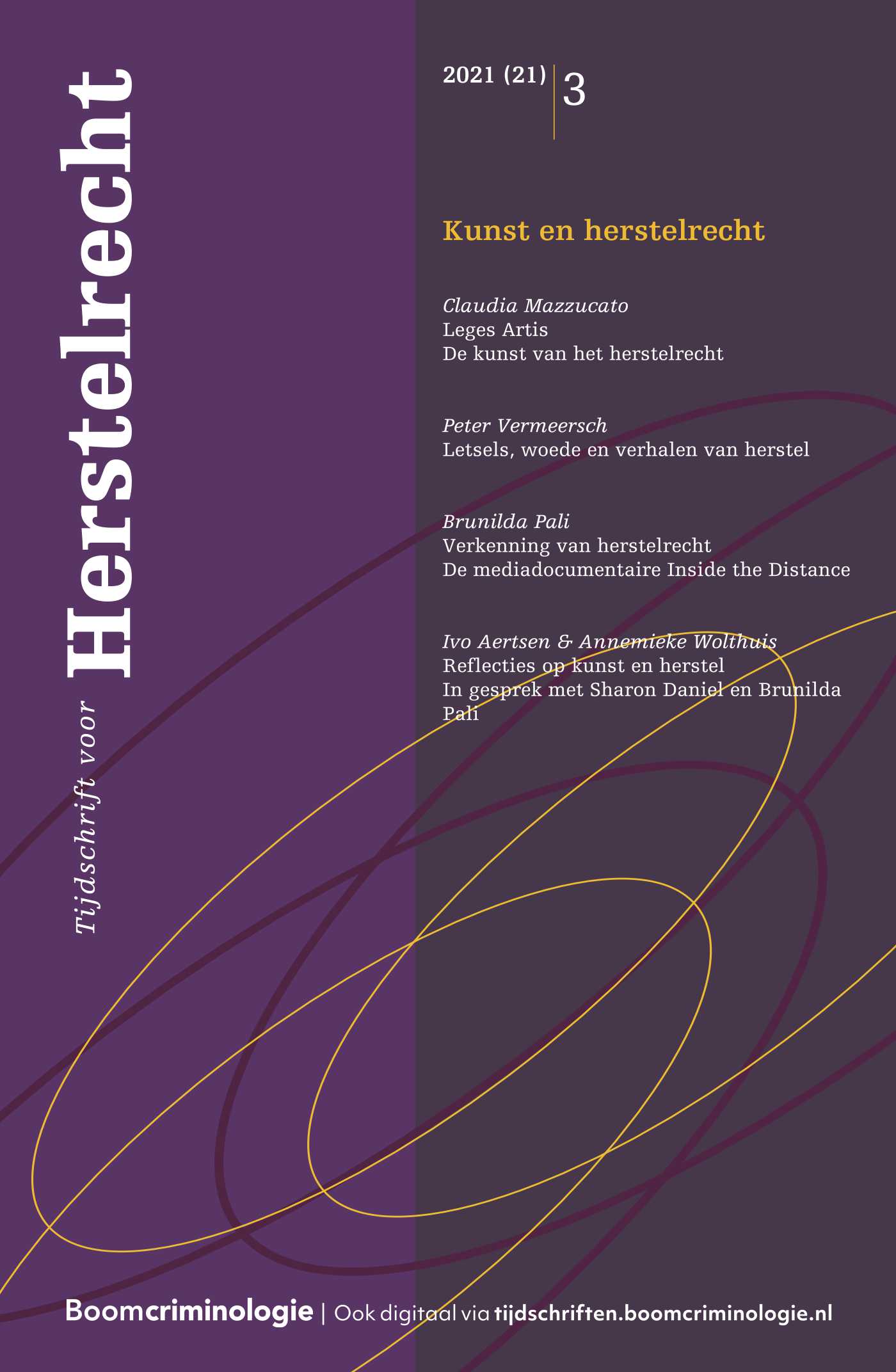|
In this paper we compare the experiences of victims of serious violent crimes with a restorative intervention completed before or after a judicial decision was taken. Specifically, we ask: What is the impact of the availability of a judicial decision on the victims’ assessment of the restorative intervention? We conducted interviews with victims of violence in Belgium and Canada. The findings show that these victims are satisfied with a restorative intervention, irrespective of the phase in which this intervention takes place, provided that the intervention is complemented with a judicial procedure in which the offender is held responsible for his actions. |


Tijdschrift voor Herstelrecht
Meer op het gebied van Mediation en herstelrecht
Over dit tijdschriftMeld u zich hier aan voor de attendering op dit tijdschrift zodat u direct een mail ontvangt als er een nieuw digitaal nummer is verschenen en u de artikelen online kunt lezen.
| Column |
Herstelrecht ter preventie van radicalisering |
| Auteurs | Ron van Wonderen |
| Auteursinformatie |
| Redactioneel |
Bemiddelen en berechten: schurende procedures? |
| Auteurs | Bas van Stokkom |
| Auteursinformatie |
| Artikel |
Herstelrecht en slachtoffers van geweldsmisdrijvenTevredenheid met een herstelgerichte interventie voor en na de gerechtelijke procedure |
| Trefwoorden | Beslissingscontrole, België, Canada, recht vóór en na vonnis, slachtofferparticipatie |
| Auteurs | Tinneke Van Camp en Jo-Anne Wemmers |
| SamenvattingAuteursinformatie |
| Artikel |
Vrijwilligheid, vertrouwelijkheid en onpartijdigheidOpvattingen van deelnemers aan herstelbemiddeling in Vlaanderen |
| Trefwoorden | Herstelbemiddeling, werkingsprincipes, onpartijdigheid, vrijwilligheid, vertrouwelijkheid |
| Auteurs | Vicky De Mesmaecker |
| SamenvattingAuteursinformatie |
|
This article considers the fundamental restorative justice principles of voluntary participation, the impartiality of the facilitator and the confidentiality of the restorative process from the point of view of participants to victim-offender mediation in Flanders, Belgium. These principles have remained relatively theoretical; little is known about how they are perceived by the participants to restorative practices. Results of our study show that whereas victims and offenders unequivocally support the principles of voluntariness and impartiality, the principle of confidentiality causes dissatisfaction and frustration when they believe it hinders the judge trying the case in court from establishing the truth about the facts. |
| Discussie |
Binnenlands terrorismeEen uitdaging voor herstelrecht |
| Auteurs | Lode Walgrave |
| Auteursinformatie |
| Boekbespreking |
Hotel pardon |
| Auteurs | Inge Vanfraechem |
| Auteursinformatie |
